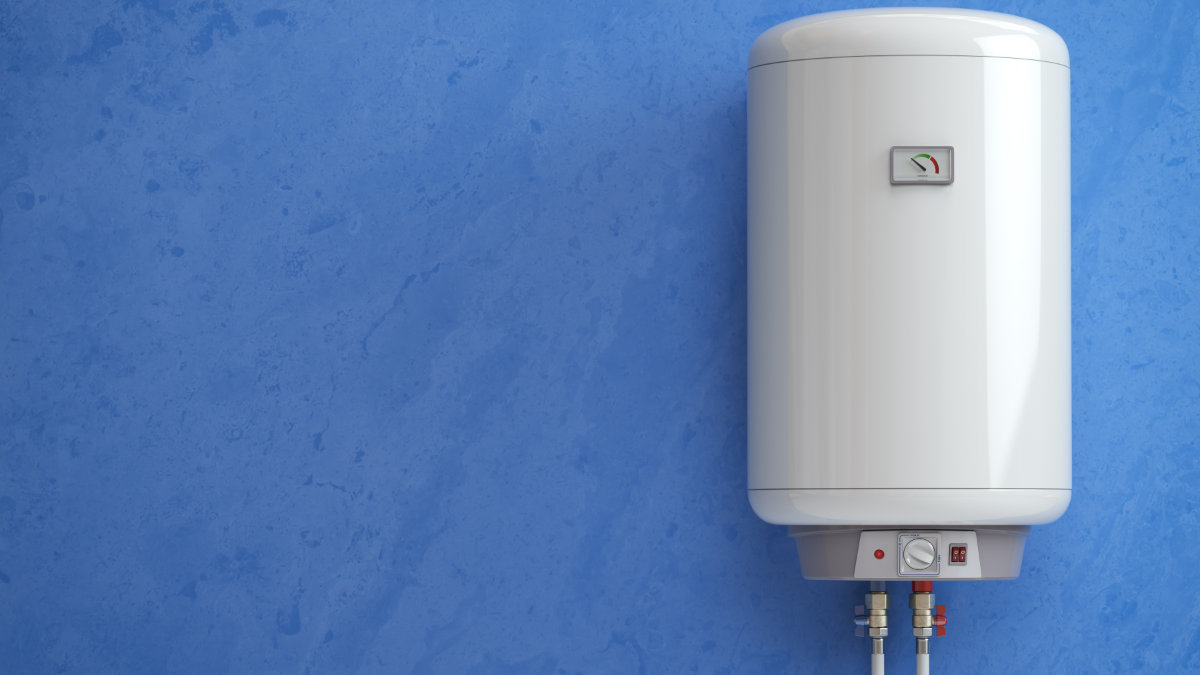A boiler is one of the most important items in your home. The heart of your home heating system, an efficient and reliable boiler is essential for providing hot water and keeping your home warm, especially in winter. Choosing a new boiler if your old boiler breaks can be confusing – our guide to buying a replacement boiler can help you choose.
With proper care and maintenance, a good boiler should last up to 15 years. However, as boilers may become less efficient over time, it’s recommended that you start considering a replacement once your current model is approaching 10 years old.
However, when it comes to choosing a replacement boiler, it can be a struggle trying to figure out exactly what you need. Boilers are expensive items and a long-term commitment, so choosing the right one for your home is a big decision.
If you’re in the market for a new boiler, here’s our guide to choosing the best replacement boiler for you.
New boiler types: which is best for you?
Selecting the right kind of boiler is the first step. There are three main types of boiler:
Combi boiler – Combination or combi boilers are the most popular type of boiler. They provide unlimited heat and hot water when you want it, so there’s no need for a water tank or cylinders. They are also quicker, easier and cheaper to fit than system boilers and you can buy a gas or electric versions.
Conventional boiler – A heat-only or conventional boiler have a hot water cylinder or tank where heated water is stored for use at a later time.
System boiler – Also known as a sealed system, these boilers work in a similar way to heat-boilers. They require a water cylinder to store the heated water but no water tank, which means they take up less space and are easier and cheaper to install than conventional boilers.
A standard combi boiler is suitable for most homes but works best in smaller homes or those living alone where hot water isn’t needed in lots of places at the same time. With a larger family home that may need lots of hot water at the same time, a system or heat-only boiler may provide a better solution.
Buying an energy-saving new boiler
There are several different things to look for in your replacement boiler but first and foremost is efficiency. This is particularly true if you’re replacing an older-style boiler, as you have the perfect opportunity to take advantage of modern technology and the benefits a gas condensing boiler can bring.
A modern boiler can reduce your energy bills as well as your carbon footprint, saving you money and ensuring your home is as green as possible.
If the boiler you’re replacing is already a modern-style condensing boiler you will still want to look for an efficient replacement.
Look too for boilers that come with wireless thermostats, which provide superior temperature control as they are capable of sensing the surrounding air temperature, then switch the heating on and off accordingly. This ensures you always have the perfect temperature and avoid accidentally leaving the heating on longer than necessary, wasting energy and money. Wireless controls also remove the need for the costly and disruptive installation of additional wiring.
In addition to wireless thermostats, other control options to consider are timers, thermostatic radiator valves (TRVs), and room thermostats. These options all give greater control over your heating, helping you to save money and energy.
Read our energy-saving tips: cut gas and electricity costs guide.
How to choose the best new boiler for you
Given so many factors, it’s important to take a balanced approach to choosing the perfect boiler. In addition to the basic considerations of efficiency and wireless capabilities, there are several factors you should consider when choosing your new boiler.
Gas or electric – The price of gas means installing a gas boiler offers the cheapest way to heat your home and provide hot water. That said, the overall cost may be higher than opting for an electric boiler as gas boilers are more difficult, and therefore more expensive, to maintain and repair.
Electric boilers – work on the same principles as traditional gas boilers but use electricity to heat the water. Smaller and easy to fit than most gas boilers, they’re quiet to run and highly energy efficient. An electric boiler may be the only choice for properties that lack mains gas supply or have gas restrictions, such as flats or listed buildings.
Boiler size – It’s important to consider the best size for your new boiler. This is dependent upon two things, the hot water capacity and capabilities you need, and the heating requirements of your home. Your boiler needs to be physically large enough to heat your home, but it also needs to fit in the available space you have.
The number of bathrooms in your home also affects the size of the boiler you need, as do the number of people living in your home. The larger your home, and the more bathrooms and people you have in it, the larger your boiler needs to be. Other factors to consider are the number of radiators in your home, the level of insulation and the kind of pipes connecting your system.
A heating engineer can determine the best size boiler for you. Alternatively, you can use a free online calculator such as the Glow-worm boiler calculator and the Boiler Guide.
Don’t forget to factor in any plans you may have to extend your home, convert a loft or increase the number of radiators. A good boiler will last you for years, so plan ahead.
Boiler position – Another important factor is the location for your new boiler. Most modern boilers today are light and compact, so can be easily wall mounted. Narrower free-standing boilers can be fitted between kitchen units.
Water pressure – Water pressure is another aspect to take into consideration. If you’re considering a combi boiler, you will need to check your pressure and water flow. If they’re low this will affect the performance of your new boiler.
Warranty – Your new boiler should come with a warranty. Check the length of the warranty – it should be up to five years with the option to extend it to 10. Check how easy it is to obtain replacing parts for the boiler. In the event it needs maintenance or repair, parts that are difficult to find can make things tricky, even you have a warranty in place.
New boiler costs
A new boiler doesn’t come cheap. Prices vary depending on the brand, type and size you choose.
Generally speaking, you should expect to pay at least £500 for a new or replacement one, however that price can rise to £2,500, or even higher if you have a very large home with multiple bathrooms and residents. If you have mains gas, a gas boiler is likely to be the cheapest heating option.
While the high price can seem like a daunting prospect, it’s worth noting that while the installation costs of a new boiler are high, if you’ve chosen wisely your new boiler should provide increased efficiency and actually save you money in the long-term by significantly reducing your heating costs. This is particularly true if your existing boiler is very old and doesn’t take advantage of modern technology, or if the boiler is unsuited to your house.
The cost of a replacement boiler will vary depending upon the type and size you are getting. Some additional factors that can affect the price, or result in additional costs are:
- Gas piping that needs re-running due to being undersized;
- The addition of a condensate pipe to a system that doesn’t have an existing one;
- Any sealing requirements needed if, for example, you currently have expansion tanks;
- Any building work required such as bricking up existing or installing flue holes.
Where to buy a new boiler
New boilers can easily be bought online or as part of a boiler installation service offered by British Gas and other suppliers like Heatable. Alternatively, you can arrange for a local supplier to source and fit your new boiler for you. Always use a professional qualified heating engineer – check that they are Gas Safe registered.
Best-selling smart thermostats
Stuck for inspiration? Check out our list of best-selling Amazon products!
No products found.
You may be interested in…
This article may include affiliate links to products and services where we may receive a small fee to support the running of this site if you make a purchase or is a sponsored article from one of our select editorial partners providing valuable advice and information to our readers.































































